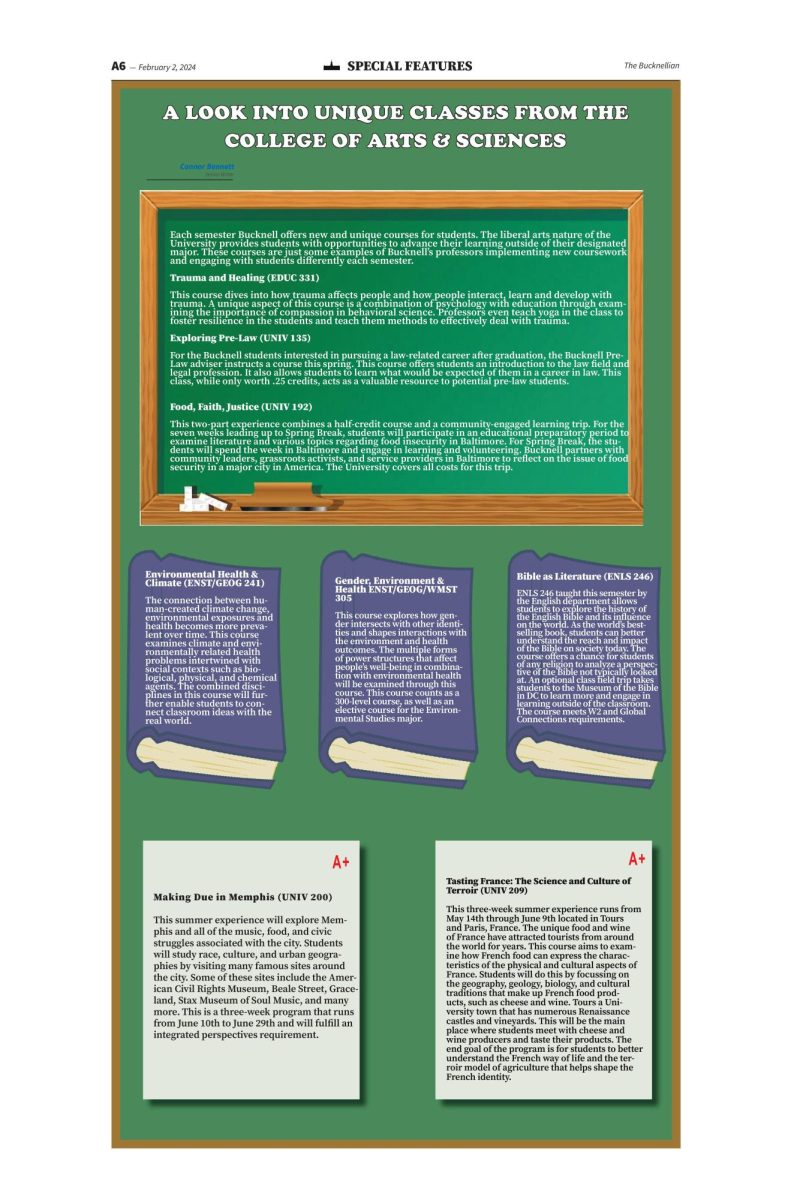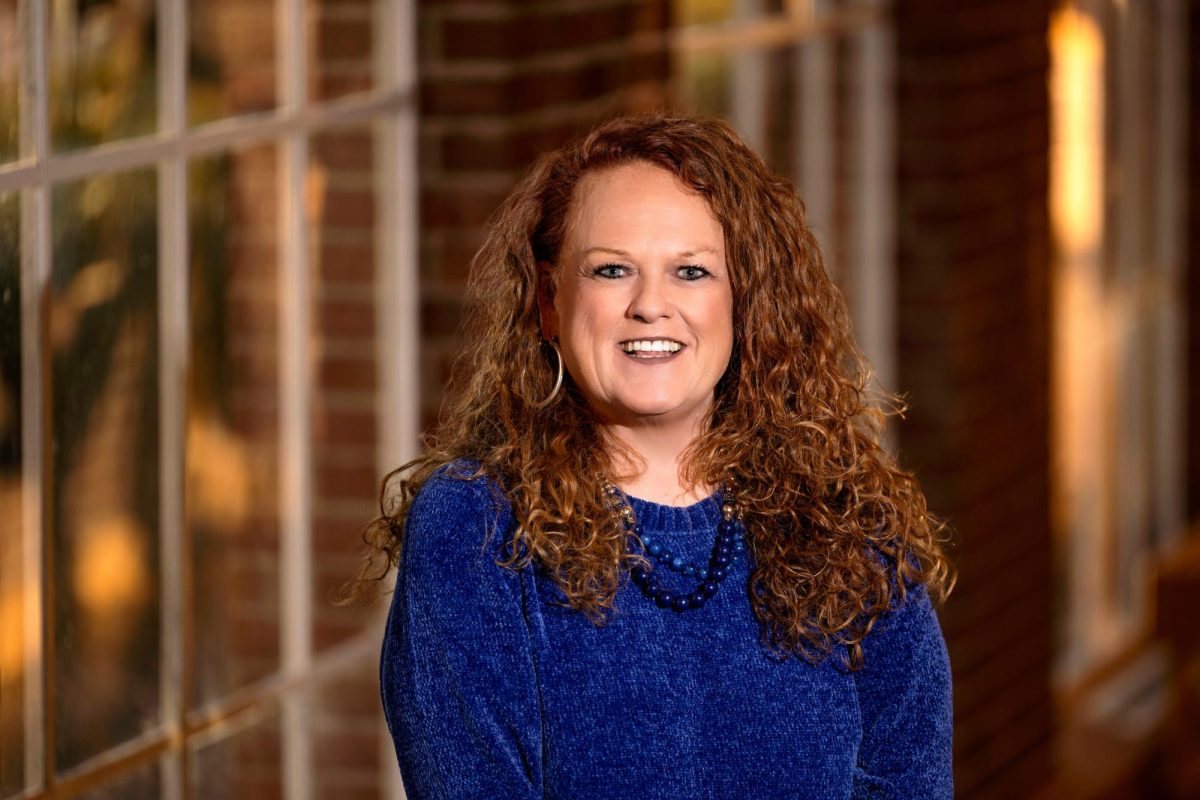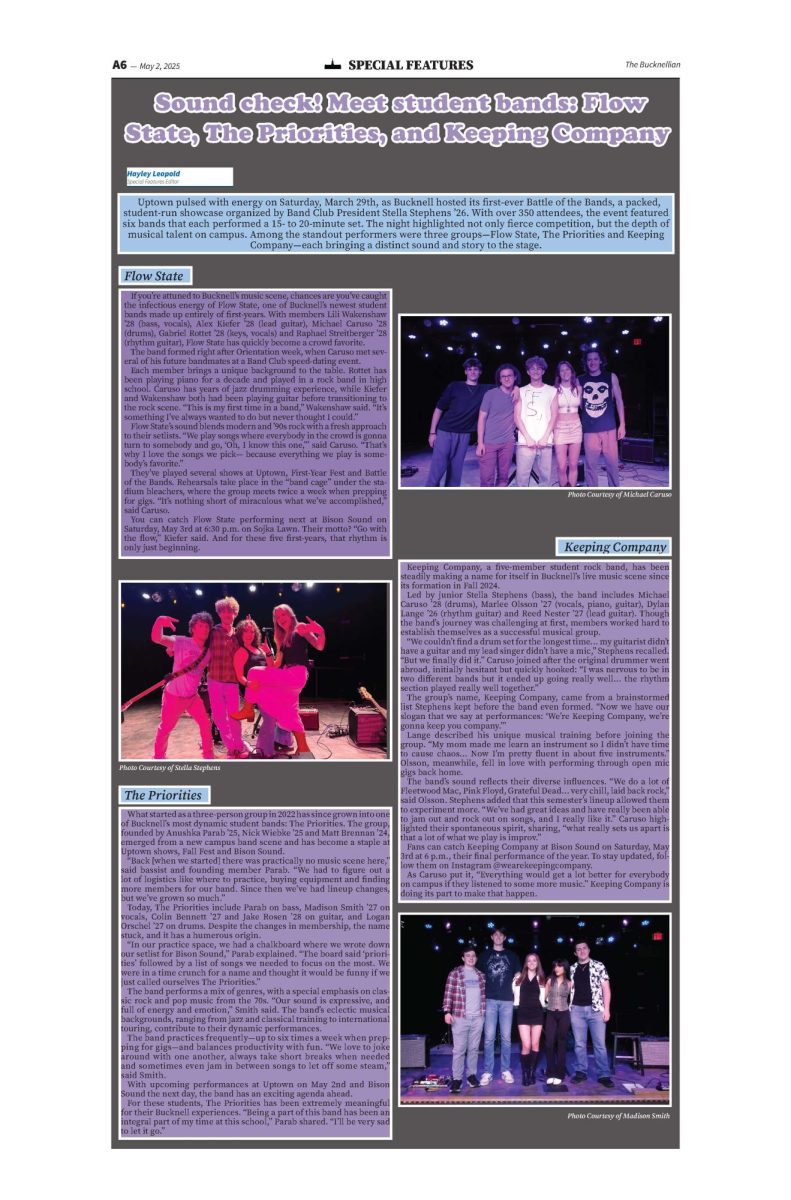Each semester Bucknell offers new and unique courses for students. The liberal arts nature of the University provides students with opportunities to advance their learning outside of their designated major. These courses are just some examples of Bucknell’s professors implementing new coursework and engaging with students differently each semester.
Trauma and Healing (EDUC 331)
This course dives into how trauma affects people and how people interact, learn and develop with trauma. A unique aspect of this course is a combination of psychology with education through examining the importance of compassion in behavioral science. Professors even teach yoga in the class to foster resilience in the students and teach them methods to effectively deal with trauma.
Exploring Pre-Law (UNIV 135)
For the Bucknell students interested in pursuing a law-related career after graduation, the Bucknell Pre-Law adviser instructs a course this spring. This course offers students an introduction to the law field and legal profession. It also allows students to learn what would be expected of them in a career in law. This class, while only worth .25 credits, acts as a valuable resource to potential pre-law students.
Food, Faith, Justice (UNIV 192)
This two-part experience combines a half-credit course and a community-engaged learning trip. For the seven weeks leading up to Spring Break, students will participate in an educational preparatory period to examine literature and various topics regarding food insecurity in Baltimore. For Spring Break, the students will spend the week in Baltimore and engage in learning and volunteering. Bucknell partners with community leaders, grassroots activists, and service providers in Baltimore to reflect on the issue of food security in a major city in America. The University covers all costs for this trip.
Environmental Health & Climate (ENST/GEOG 241)
The connection between human-created climate change, environmental exposures and health becomes more prevalent over time. This course examines climate and environmentally related health problems intertwined with social contexts such as biological, physical, and chemical agents. The combined disciplines in this course will further enable students to connect classroom ideas with the real world.
Gender, Environment & Health (ENST/GEOG/WMST 305)
This course explores how gender intersects with other identities and shapes interactions with the environment and health outcomes. The multiple forms of power structures that affect people’s well-being in combination with environmental health will be examined through this course. This course counts as a 300-level course, as well as an elective course for the Environmental Studies major.
Bible as Literature (ENLS 246)
ENLS 246 taught this semester by the English department allows students to explore the history of the English Bible and its influence on the world. As the world’s bestselling book, students can better understand the reach and impact of the Bible on society today. The course offers a chance for students of any religion to analyze a perspective of the Bible not typically looked at. An optional class field trip takes students to the Museum of the Bible in DC to learn more and engage in learning outside of the classroom. The course meets W2 and Global Connections requirements.
Making Due in Memphis (UNIV 200)
This summer experience will explore Memphis and all of the music, food, and civic struggles associated with the city. Students will study race, culture, and urban geographies by visiting many famous sites around the city. Some of these sites include the American Civil Rights Museum, Beale Street, Graceland, Stax Museum of Soul Music, and many more. This is a three-week program that runs from June 10th to June 29th and will fulfill an integrated perspectives requirement.
Tasting France: The Science and Culture of Terroir (UNIV 209)
This three-week summer experience runs from May 14th through June 9th located in Tours and Paris, France. The unique food and wine of France have attracted tourists from around the world for years. This course aims to examine how French food can express the characteristics of the physical and cultural aspects of France. Students will do this by focussing on the geography, geology, biology, and cultural traditions that make up French food products, such as cheese and wine. Tours a University town that has numerous Renaissance castles and vineyards. This will be the main place where students meet with cheese and wine producers and taste their products. The end goal of the program is for students to better understand the French way of life and the terroir model of agriculture that helps shape the French identity.





















